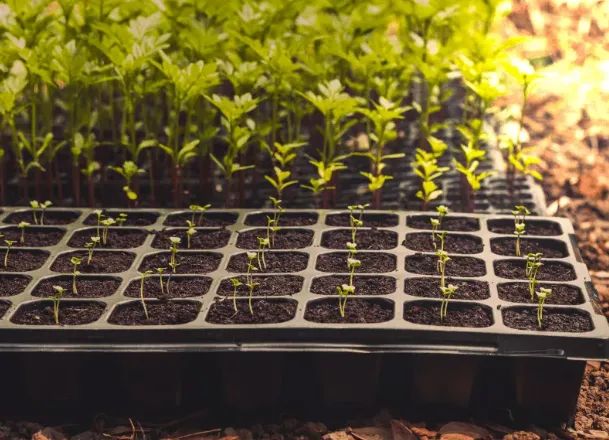What is the seedling tray method?
The seedling tray method, also known as seed tray or nursery tray method, is a popular technique in horticulture and agriculture for germinating and cultivating seedlings in a controlled environment before transplanting them to their final growing location. This method is widely used in the propagation of various plants, including vegetables, flowers, and herbs. Here's an overview of the seedling tray method:
Components of the Seedling Tray Method:
Seed Trays or Seedling Trays:
Seed trays are shallow containers with multiple small compartments or cells designed to hold individual seeds. These trays come in various sizes and materials, including plastic and biodegradable options.
Growing Medium:
The growing medium, often a specialized seed-starting mix, provides a well-balanced environment for seed germination. It is lightweight, sterile, and has good water retention properties.
Seeds:
High-quality seeds suited for the specific plant species are selected. The seeds are usually sown at the recommended depth in each cell of the seed tray.
Watering System:
Seedling trays may feature bottom-watering systems, where water is absorbed from the tray's base, or top-watering methods, where water is applied directly to the soil surface.
Steps in the Seedling Tray Method:
Prepare the Seed Trays:
Fill the compartments of the seed starting tray with the seed-starting mix, leaving a little space at the top.

Sow the Seeds:
Plant the seeds in each cell at the recommended depth, following the guidelines specific to the plant species.
Watering:
Ensure the growing medium is evenly moist. The method of watering depends on the tray design, but it's crucial not to overwater, as this can lead to damping off or other fungal issues.
Provide Optimal Conditions:
Place the seed trays in a controlled environment with appropriate temperature, humidity, and light conditions. Many gardeners use indoor seed starting setups or specialized germination chambers.
Monitor and Maintain:
Regularly check the moisture level in the growing medium and adjust watering as needed. Keep an eye on the seedlings for signs of germination, and provide adequate light once they emerge.
Transplanting:
Once the seedlings have developed strong roots and true leaves, they are ready for transplanting into larger containers or directly into the garden or field.
Advantages of the Seedling Tray Method:
Controlled Environment:
The method provides a controlled and sterile environment for germination, reducing the risk of diseases and pests.
Space Efficiency:
Plant Seed trays optimize space, allowing for the efficient use of growing areas, particularly in indoor or greenhouse settings.
Early Start:
It allows for an early start to the growing season, giving plants a head start before being transferred outdoors.
Uniform Growth:
Plastic Seedling trays promote uniform growth, as each seed is given its own space and resources.
Ease of Handling:
Handling and transplanting seedlings from trays are more manageable compared to dealing with individual pots.
The seedling tray method is a valuable technique for growers seeking precision, efficiency, and successful early-stage plant development in a variety of horticultural and agricultural settings.

Comments